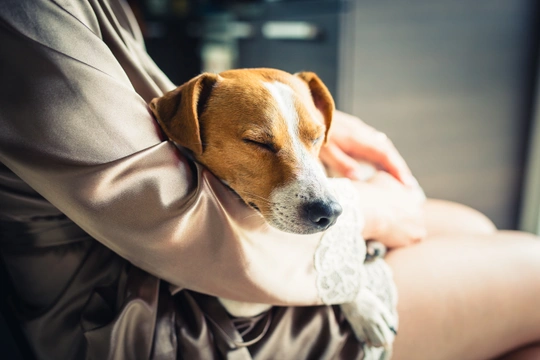
Five tips to make Guy Fawkes night less stressful for your dog
Here in the UK, Halloween is becoming ever more popular year on year as a holiday that lots of children – and adults – like to celebrate, and whilst it isn’t anywhere near a big a deal as it is in the USA, it is certainly getting that way!
However, Britain also of course has its own unique holiday a few days after Halloween too; which is Guy Fawkes night, sometimes just known as bonfire night, when we remember the story of Guy Fawkes, who attempted to blow up the houses of parliament in a bid to overthrow the king.
The story is still taught to children in schools, albeit most of us adults are a little hazy on the details – and today, most of us think of Guy Fawkes night as a night of bonfires, dressed up effigies, toasted marshmallows and of course, fireworks.
Fireworks and dogs are not a great mix, as anyone who has spent an evening trying to coax their dog out from under the sofa when fireworks are in the offing will know, and Guy Fawkes night or bonfire night is very distressing for many dogs. This means that lots of people don’t really get to enjoy the night itself because they’re trying to keep their dog calm and reduce their fear of the bangs and flashes, and there is a good case to be made for fireworks to be banned entirely outside of organised displays in the minds of many.
If your dog finds Guy Fawkes night stressful, which tends to be most dogs to some extent, you might already know all of the bonfire night tips and tricks for dogs to try to ease their anxiety; but there might still be a few that you haven’t thought of.
With this in mind, this article will share five tips to help to make Guy Fawkes night less stressful for your dog. Read on to learn more.
Don’t take them to a bonfire party or fireworks display
First of all, the absolutely worst place for a dog to be on Guy Fawkes night is at a bonfire party or fireworks display, which should be self-evident. However, if you have friends who are having a bonfire and/or know of an event where fireworks won’t be involved, you might be considering taking your dog along as this seems like it should be stress free – but your dog is still better left at home.
Even if nobody at the event has fireworks, people in the surrounding area almost certainly will, and then you’ll be out with your dog facing a lot of noise and stimulus, which can scare your dog and may well ruin your own night too while you cope with it.
Don’t leave them at home alone
Dogs are best left at home and closed in somewhere safe on bonfire night, because the stress can result in erratic behaviours and potential flight or injuries due to panic and fear. However, it is not wise to leave your dog alone at home unsupervised either, as they will need someone there for reassurance and to help to relieve their anxiety; plus they should be supervised to ensure they don’t hurt themselves if they do panic.
Don’t pander to their fears
Having someone they love and trust around is hugely reassuring for dogs, and as pack animals, they look to their pack leader for direction; that is you! This means that the way that you act, react to fireworks, and treat your dog will direct in a large part how your dog responds to the external stimulus itself.
You might think that cuddling your dog close, shushing them, and empathising with their fear is the best approach, and this is a very natural reaction. However, by doing this you actually reinforce your dog’s fear, and indicate to them that their fear is warranted!
Instead, lead by example, be calm, behave normally, and use your normal tone of voice and perform your usual activities.
Mask noise and light where possible
Reducing the impact that the noise and light of fireworks has inside of the house goes a long way towards helping your dog to keep calm, as the louder or brighter the stimulus, the more frightening they will find it to be, or the closer it will appear.
Cover your windows (close the curtains and if possible hang something over the windows too to black out the flashes) and use a radio or TV at a reasonable volume to mask the noise and light of fireworks, and help to keep your dog on an even keel.
Train and condition your dog for next year
Dogs can be trained and conditioned not to be hyperreactive to the bangs and flashes that we associate with fireworks, but doing this can be a drawn out process that moves slowly and needs to be handled carefully. As the memory of bonfire night fades, this tends to seem less important – but fireworks are frequently let off at several other times of the year too, and there is a lot to be said for training your dog to find them less frightening.
Make this the year when you commit to doing this, and work to get your dog acclimatised to unexpected bangs and noises so that they find bonfire night next year less scary.



